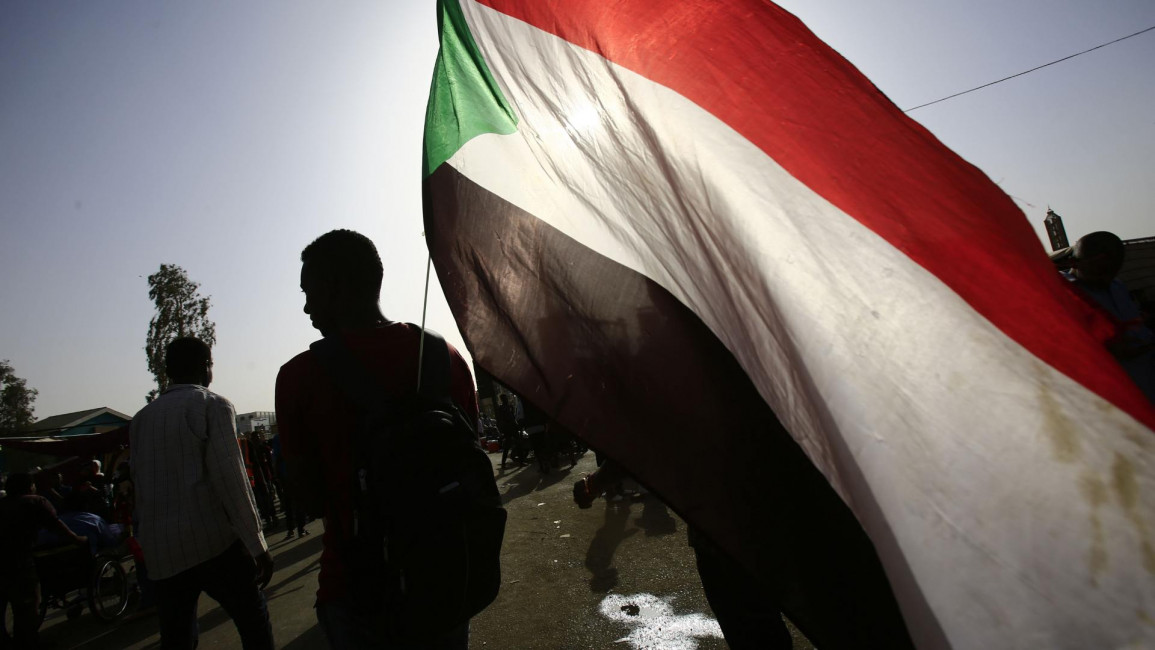Sudanese opposition parties reject draft security bill granting transitional government Bashir-era powers
Sudanese opposition parties reject draft security bill granting transitional government Bashir-era powers
Opposition figure have compared the draft bill to security laws under the former regime.
2 min read
It would allow security forces to detain someone for 48 hours without a warrant [Getty]
Several opposition figures have reject a draft security bill put forward by Sudan's transitional government.
The draft law would allow Sudanese authorities to arrest someone with a court order or warrant.
It would allow security forces to detain anyone arbitrarily for up to 48 hours.
The ministry of justice began drafting the internal security law shortly after a failed assassination attempt on Prime Minister Abdalla Hamdok last year, according to The Sudan Tribune.
The deputy leader of one rebel faction said the bill was "as if Bashir had written it from prison", referring to the deposed leader.
"Everyone must resist giving the security apparatus wide powers of arrest, detention and investigation," Yassir Arman was quoted as saying by The Sudan Tribune.
Arman is the deputy leader of the Sudan People's Liberation Movement-North (Agar), one of several rebel groups to have signed a peace deal with the transitional government after the 2019 ousting of Omar al-Bashir.
Sudan's Communist Party has also rejected the draft law, calling it a "conspiracy against the forces of the revolution" that toppled Bashir.
The Democratic Unionist Party condemned the justice ministry for drafting the bill without consulting any other political parties.
"This law disappointed many of our expectations, as its provisions grant the security apparatus all the previous arrest and detention powers of the former regime's apparatus," the party said.
For his part, Arman said the bill should be approved by an elected legislative council.
Sudan's military agreed to form an elected parliament as part of a power-sharing deal signed with protest leaders in 2019 but no such legislative body has been established as of now.
The lack of an elected legislative council has been a key point of contention, particularly in the case of the government's controversial decision last year to normalise ties with Israel.
Follow us on Facebook, Twitter and Instagram to stay connected
The draft law would allow Sudanese authorities to arrest someone with a court order or warrant.
It would allow security forces to detain anyone arbitrarily for up to 48 hours.
The ministry of justice began drafting the internal security law shortly after a failed assassination attempt on Prime Minister Abdalla Hamdok last year, according to The Sudan Tribune.
The deputy leader of one rebel faction said the bill was "as if Bashir had written it from prison", referring to the deposed leader.
"Everyone must resist giving the security apparatus wide powers of arrest, detention and investigation," Yassir Arman was quoted as saying by The Sudan Tribune.
Arman is the deputy leader of the Sudan People's Liberation Movement-North (Agar), one of several rebel groups to have signed a peace deal with the transitional government after the 2019 ousting of Omar al-Bashir.
Sudan's Communist Party has also rejected the draft law, calling it a "conspiracy against the forces of the revolution" that toppled Bashir.
The Democratic Unionist Party condemned the justice ministry for drafting the bill without consulting any other political parties.
"This law disappointed many of our expectations, as its provisions grant the security apparatus all the previous arrest and detention powers of the former regime's apparatus," the party said.
For his part, Arman said the bill should be approved by an elected legislative council.
Sudan's military agreed to form an elected parliament as part of a power-sharing deal signed with protest leaders in 2019 but no such legislative body has been established as of now.
The lack of an elected legislative council has been a key point of contention, particularly in the case of the government's controversial decision last year to normalise ties with Israel.
Follow us on Facebook, Twitter and Instagram to stay connected



